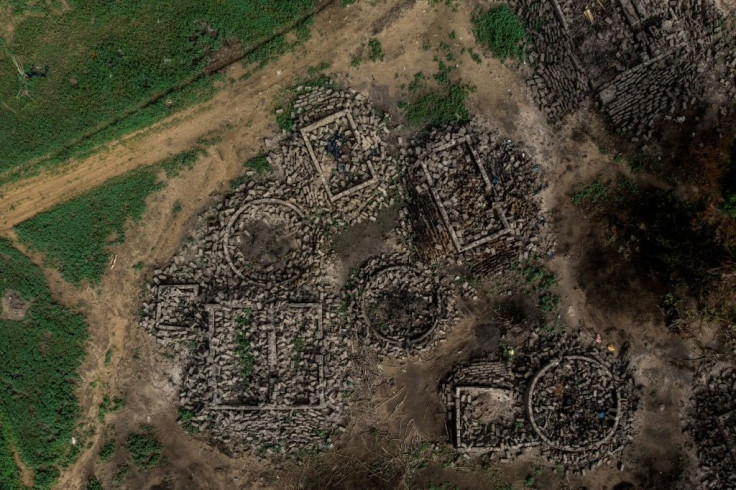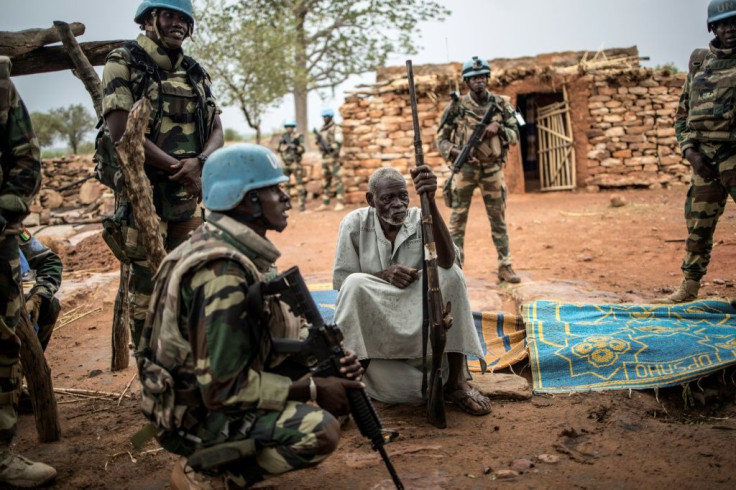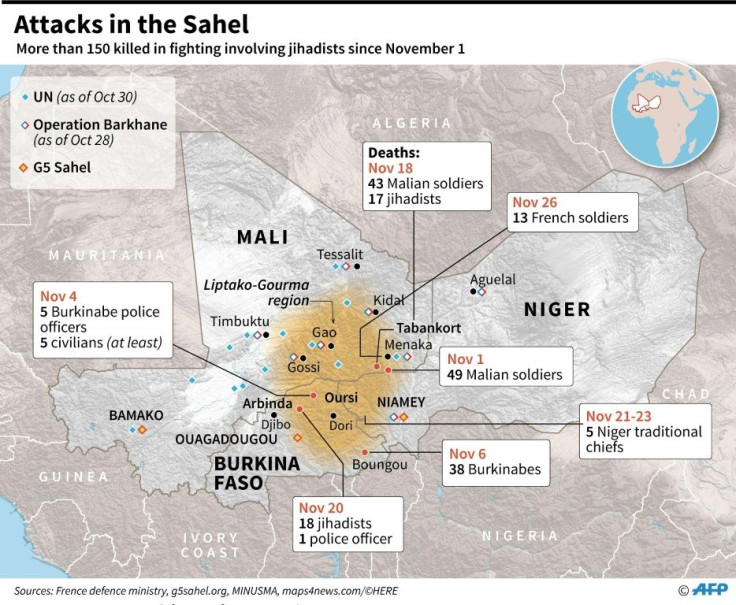Attack Kills 21 In Central Mali Ethnic Flashpoint

Twenty-one people were killed in an attack overnight on a village in central Mali, the government said Friday, in an apparent spate of ethnic violence in the deeply troubled region.
The attack occurred in Ogossagou, a village mainly inhabited by Fulani people where 160 died last March 23 in a massacre blamed on Dogon militiamen.
About 30 gunmen carried out the new attack, village chief Aly Ousmane Barry told AFP.
Malian government spokesman Yaya Sangare said that 21 people had been killed in the attack, according to a provisional tally, and that others were missing.
"Huts and crops were set alight, livestock was burned or taken away," he added, vowing that the government would find the perpetrators.
A local government official, who requested anonymity, said that 28 people were missing.
He blamed the attack on a traditional Dogon hunters' group -- an assertion that could be not be verified independently.
The official and village chief Aly Ousmane Barry both said the attackers moved in several hours after government troops had pulled out of the area.
Central Mali became gripped by ethnic violence after a jihadist revolt broke out in the north of the country in 2012.

The insurgency has claimed thousands of lives and spread to neighbouring Niger and Burkina Faso.
Tit-for-tat attacks in central Mali flared after Fulani people, also called Peul, became associated with jihadists.
Led by a firebrand Islamic preacher Amadou Koufa, a militia called the Katiba Macina recruited members from among the Fulani and became accused of ethnically-motivated attacks.
Other ethnic groups such as the Bambara or the Dogon began to form self-defence groups that in turn became accused of reprisal massacres.

In addition to the latest attack at Ogossagou, 14 Fulani were killed in central Mali in January.
Around 75 Dogons were killed in the villages of Sobane Da, Gangafani and Yoro in June last year, in an attack blamed on Fulani militants.
Human Rights Watch this month pointed to the ethnic patchwork of central Mali as the country's "epicentre" of violence.
It said over 450 civilians had been killed in the region in 2019, "the deadliest year for civilians" since the jihadist insurgency began.
Reflecting the chronic instability in the centre, Malian soldiers are themselves frequently targeted.
On Friday, one soldier was killed in an attack on a military camp in Mondoro, security officials said.
It had already been hit before -- as part of a joint raid by militants that also targeted the military camp of Boulkessy near the border with Burkina Faso, killing at least 25 soldiers.
On January 26, Al-Qaeda-linked militants attacked a military camp in Sokolo, central Mali, killing 20 gendarmes and wounding five more.
The violence in central Mali coincides with renewed hopes that the fragile government can reassert control over the widely lawless north.
Troops returned on Thursday to Kidal, a northern town that had been a bastion of Tuareg rebels, after a six-year absence.
Regular forces returned to the town accompanied by former rebels who have been integrated into the army under a regional peace agreement.
The deal, reached in Algiers in 2015, is considered one of the few avenues Mali has for escaping the cycle of violence.
© Copyright AFP 2024. All rights reserved.





















